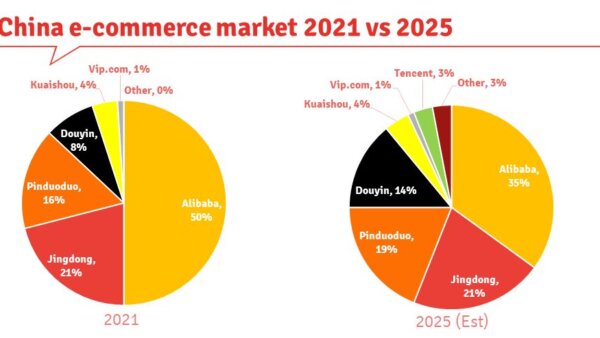Die andauernde Niedrigzinsphase, die „ewige“ Konjunktur und dann auch noch die Disruption des Marktes durch neue digitale Geschäftsmodelle führen zu vielen Verwerfungen, die für den klassischen Kaufmann schwer nachzuvollziehen sind. In diese Phase platzt nun ein schöner Artikel des bekannten Vermögensverwalters Joshua Brown. Seine Beobachtungen sind anekdotisch, aber sie fassen hervorragend die Gefühlslage des einfachen Kaufmanns zusammen. Ihr solltet den Artikel komplett lesen, aber einige Stellen möchte ich vorab hier zitieren. Am besten fasst die aktuelle Marktlage wohl „die perfekte Startup Idee“ zusammen, die Joshua bereits in 2016 in seinem Blog gepostet hat. Die Metapher lässt sich nicht pauschal auf alle digitalen Modelle übertragen, aber in letzter Zeit sieht man doch das ein oder andere, das dazu passt. Siehe dazu auch „Die Global Fashion Group.“
Here’s the perfect business idea for this environment: Open a Hundred Dollar Bill Store™. You sell hundred dollar bills for ninety dollars each. You’ll lose ten dollars per transaction but you’ll do a trillion in revenues in year one. Maybe you show an ad to everyone who walks into the store and you break even. User growth with be on the order of 1000% per month. A billion users. You’ll be the biggest IPO of all time when Goldman’s underwriters get wind of that growth rate. Go public and let someone else worry about a competitor selling hundred dollar bills for eighty-five.
Elfmeter versenkt. Aktuell erinnert der Hype um Elektroroller weltweit an den hundert Dollar Bill Store. Der Unterschied zurzeit, z.B. in Berlin ist lediglich, dass alle nur 90$ verlangen pro hundert Dollar Note, bzw. 1€ pro Fahrt mit dem Roller. Es ist nur eine Frage der Zeit, bis auch dort der Preiswettbewerb anfängt.
Die Kernthese seines Artikels ist jedoch eine andere. Er sagt, dass im aktuellen Marktumfeld Wachstum alles zählt und harte Assets nichts. In einer Welt in der Geld „kostenlos“ zur Verfügung gestellt werden kann, kann man sich alle Assets jederzeit kaufen (siehe die Elektroroller), weshalb Assets lediglich mit dem Nominalwert angesetzt werden, oft sogar darunter. Nur Wachstum wird bewertet. 10 Jährige Bundesanleihen werden negativ verzinst. Die Anleger sichern also „nur“ ihr Geld damit. Vor diesem Hintergrund stellen sich große Investoren zurecht die Fragen, warum Deutschland nicht einfach für 1.000 Milliarden Euro Anleihen auf 50 Jahre verkauft, um damit die eigene Infrastruktur (Bahn, Glasfaser…) auf ein weltweit führendes Niveau zu heben, um in 10 Jahren wieder kompetitiv sein zu können. Ja warum eigentlich nicht?
An analysis of book value captures things like plants and equipment and facilities and hard-money, real assets that corporations have managed to accumulate over their lifetimes. And when the cost of money is higher, these things are more highly valued by investors because they are expensive to replicate and costly to replace. An analysis of book value doesn’t capture things like intellectual property and brand, intangible assets that corporations have accumulated or are currently accumulating. And when the cost of money is lower (or, effectively zero) as it is today, these things become more highly valued by investors than physical assets are because they are weapons that corporations can use to nullify the moats and assets of the incumbent corporations that they are competing with for customers, revenue and market share.
Eine der spannendsten Aussagen im Artikel betrifft die These zur Dauer des Hypes. Viele Leser hier haben BWL/VWL Kurse an der Uni belegt und wissen, dass es nur der Teil eines Zyklus sein kann, aber zurzeit sind diese Theorien leider nichts wert.
At the end of the dinner, Jason Zweig asked Bernstein “What’s the one thing that’s on your mind that no one else at this table is talking or thinking about right now?” Bernstein said he’d been thinking about the question “What if the cost of capital never rises again?” The implications of a world in which equity capital is flowing while interest rates on credit never rise to the level of being a serious roadblock for innovation are fascinating to consider. What if every new idea that comes along, no matter how world-altering and disruptive, no matter how unproven or risky, can get overnight funding without much of a problem? Masayoshi Son’s Vision Fund has been investing based on this premise
Fatalerweise trifft die hoch bewerteten Startups dieser Effekt auch in die andere Richtung, wenn das schnelle Wachstum nicht mehr anhält und damit die „Bewertungsblase“ deutlich kleiner wird, auch wenn bereits ein profitabler Pfad erkennbar ist. Empfehlenswert dazu ist der aktuelle Artikel zu Evernote in der New York Times.
Founded in 2004, it was among the first companies to ride the wave of smartphone adoption, and many expected it would achieve a triumphant initial public offering. Instead, the company cycled through four chief executives, several rounds of layoffs, three office closings and the shuttering of numerous side projects, including Japanese-made smart covers for your feet. Last September, when four top executives left at once, tech blogs declared that the company was in a “death spiral.”
Und genau dieser Effekt führt zu enormen Verwerfungen bei klassischen Anlagestrategien. Man kann zurzeit nichts mehr „billig“ kaufen, weil es unterbewertet ist. Das gilt genauso wenig für Aktien wie für die klassische Stadtwohnung in Hamburg oder Osnabrück.
There are no asset managers who represent their strategy to clients as “We buy the most expensive assets, and add to them as they rise in price and valuation.” That’s unfortunate, because this is the only strategy that could have possibly enabled an asset manager to outperform in the modern era. It’s one of those things you could never advertise, but had you done it, you’d have beaten everyone over the ten-year period since the market’s generational low. But almost every investment professional says that they do the opposite of this. Even the explicitly growth-oriented managers use terms like “at a reasonable price,” to communicate their place on the spectrum of speculative chastity. There are no textbooks lauding an investment approach where it makes more sense to buy PayPal at 4 times book on its way to 9 times book while forsaking Goldman Sachs at less than 1 times book.
Joshua schließt seinen Artikel mit einer Menge offener Fragen, die sich zusammenfassen lassen mit. An welcher Stelle des Hype Zyklus sind wir? Solange Geld weiterhin nichts kostet, und nichts deutet auf eine gegenteilige Entwicklung hin, werden die Stadtwohnungen wohl noch viel teurer und die Fahrten mit dem Elektroroller billiger. Vielleicht bekommen wir sogar irgendwann Geld dafür im Tausch für Daten „Welche Strecke fährst du?“.
Ich freue mich gleich auch auf die reale Diskussion dazu im Möbelsegment dazu https://pioneers-of-lifestyle.de/ in Frankfurt. Home24 ist dazu ein schönes Beispiel, dass gemäß Joshuas Aussagen negativ bewertet sein müsste. Kaum Wachstum, keine harten Assets.



